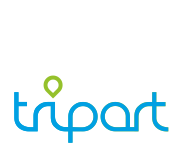Prescription drug abuse Symptoms and causes
Content
Our detox services in Gardena and Redondo Beach, California are provided by our dedicated team of nurses and doctors who provide around-the-clock care, helping you or your loved one safely detox from alcohol or drugs. Our expert team of medical professionals will help you identify the underlying causes of addiction and prescription drug abuse, gain skills to achieve long-term sobriety, and build a community that will support your sobriety journey. Knowing the signs of opioid overdose if you or a loved one is struggling with prescription drug abuse can save a life. Signs of overdose include cold, sweaty skin, tremors or shaking, trouble breathing, difficulty speaking, seizures, and unconsciousness. If you are concerned about overdosing with your loved one or yourself, keep Naloxone with you in an accessible place. Naloxone is an antidote to opioid overdose and can reverse the effects of the overdose 6.
Symptoms
Oftentimes, when you are struggling with prescription drug abuse, it’s common to turn to more illicit and illegal drugs when your ability to obtain your drug of choice ends. For example, if you are seeking opiates but cannot get what you want, it is common to turn to drug dealers who have the opiate you are looking for in pressed pills. These pressed pills may also contain fentanyl, which has high overdose and death rates and is more commonly found in illegal substances.
Anti-anxiety medicines and sedatives
They typically come in pill form, although there are some stimulants that can be taken as a skin patch or in liquid form. Some people fear that they may become addicted to medicines prescribed for medical conditions, such as painkillers prescribed after surgery. But you can reduce your risk by carefully following your health care provider’s instructions on how to take your medicine.
Outpatient Treatment Programs
Stimulants, depressants, and opioids all affect an individual’s cardiovascular and respiratory systems. In the event of an overdose, a person can experience low blood pressure, seizures, respiratory failure, heart attack, heart failure, or stroke. Prescription drug abuse in older adults is a growing problem, especially when they combine drugs with alcohol. Having multiple health problems and taking multiple drugs can put people at risk of misusing drugs or becoming addicted. Prescription drug abuse is the use of a prescription medicine in a way not intended by alcoholism the prescriber.
When to see a doctor
Prescription drug abuse, also called prescription drug misuse, includes everything from taking a friend’s prescription painkiller for your backache to snorting or injecting ground-up pills to get high. Prescription drug abuse may become ongoing and compulsive, despite the negative consequences. The best option for treatment will depend on the patient’s specific needs, and should be decided in consultation with a doctor, counselor, and trusted family and friends. If an individual undergoes inpatient treatment, they may move to a sober living house after completing rehabilitation, to help transition back to sobriety. Individuals may also need additional treatment for underlying psychological or physical issues that contributed to the addiction. Generic drugs are designed to work exactly the same as their name-brand counterparts, just for a lower cost.
Signs of Prescription Drug Abuse
- Ativan and Xanax, both benzodiazepines, are the more well-known sedatives meant to treat anxiety or panic disorders, seizure disorders, and sleep disorders.
- Stimulants can cause heart problems, an increase in body temperature, seizures, high blood pressure, aggression, hallucinations, and paranoia.
- There are some factors that can increase the likelihood of developing a prescription drug addiction, such as personal history, the nature of the disorder or issue being treated, and co-occuring disorders.
- If you or someone you know exhibits any of the signs of prescription drug abuse or addiction, it’s important to speak to a doctor and seek help.
- Knowing the signs of opioid overdose if you or a loved one is struggling with prescription drug abuse can save a life.
During this time, the person will usually experience withdrawal, while the body and brain seek the chemicals to which they are now accustomed. Depending on they type of drug, and the length of addiction, withdrawal symptoms and how long they last will vary. While prescription overdoses most typically involve opioids, it is possible to overdose on stimulants or depressants, especially if they are mixed with other drugs or alcohol. There are a number of physical, psychological, and behavioral signs and symptoms that can indicate an addiction to prescription drugs. There are two types of drugs common in the prevention, treatment, or cure of diseases and medical conditions – prescription drugs and over-the-counter (OTC) drugs.
Opioids
Follow these steps to help prevent your teen from abusing prescription medicines. If you or a loved one is using prescription drugs, you should be aware of the signs https://ecosoberhouse.com/ of drug abuse. Mental health has been shown to play a significant role in causing drug abuse, and it is important to seek out treatment that treats both mental health and substance use problems, such as dual diagnosis treatment 5. We are the leading experts in prescription drug addiction treatment in the Los Angeles, California area. There are some drugs that can be used to ease withdrawal symptoms, particularly for opioid addiction, including methadone and buprenorphine, although they are also opioids, and carry some risk.
Ativan and Xanax, both benzodiazepines, are the more well-known sedatives meant to treat anxiety or panic disorders, seizure disorders, and sleep disorders. These drugs are commonly abused as their effects have a quick onset, which means users experience a high within minutes of ingesting the sedative1. An increasing problem, prescription drug abuse can affect all age groups, including teens. The prescription drugs most often misused include opioid painkillers, anti-anxiety medicines, sedatives and stimulants. If you or your loved one is seeking help for prescription drug addiction, please reach out to our team.
18.4% or 52 million Americans over the age of 12 have deliberately misused prescription drugs at least once in their lifetime. And 5.76% of Americans over the age of 12 currently abuse prescription drugs 1. Dependence, also called drug tolerance, refers to the body’s response to long-term drug use. If you become dependent on these drugs, you may feel the need to increase the dose to achieve the same effect and might experience withdrawal symptoms if you try to stop or take less of the medication. The first step in the treatment and recovery process is detoxification, in which the individual stops taking the drug, and allows the body to fully remove the drugs from its system.






Leave a Comment